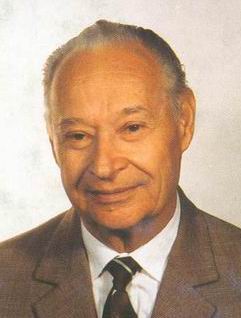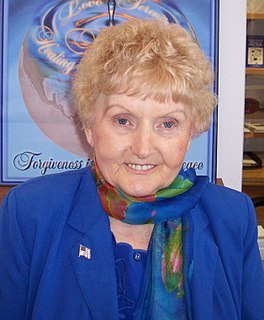A Quote by Alexander Dubcek
In the first day of the Soviet Army's arrival, I and the other comrades were isolated and then found ourselves here, not knowing anything... I can only conjecture what could have happened.
Related Quotes
The Photo Album is the weakest record. For the first time in our careers, we found ourselves with an economic incentive to be on the road and to be making albums. We had cut ourselves free from the security of day-job life. The goals became primarily financial, at least for a while. That was the roughest time we had ever had as a band, because that was the first moment we realized that this was for real. We were not goofing around anymore. We all threw everything we had into this in a way where we all found ourselves really far from home, and we were stuck with each other.
My vocation is more in composition really than anything else-building up harmonies using the guitar, orchestrating the guitar like an army, a guitar army. ... I always felt if we were going in to do an album, there should already be a lot of structure already made up so we could get on with that and see what else happened. ... I always believed in the music we did and that's why it was uncompromising. ... I don't think the critics could understand what we were doing.
We were very, very lucky [with Tim White filmed making historic discoveries in the East African Rift ] . In 100 years, only three skeletal remains [of early man] were ever found at this site. This was the third one, and we were right there when it happened. In fact, when I first heard they had found something, I said, "Please stop it! Don't do anything right now. Let's do it tomorrow until we have unpacked our cameras and assembled our stuff.
A canteen I remember vividly, and maybe one other thing, I can't remember. And I knew then that he had bought them in an army surplus store that day and he wanted to maybe enhance himself in my eyes, and say, "Well, yes, I have been in the army." Or [he] simply just didn't want to disappoint me. It could have been one or the other. But I knew that he had lied to me. And this filled me with a tremendous sort of anger towards him. At the same time, knowing he was trying to please me, so feeling good about him.
We ran up to them and they gave us hugs, cookies and chocolate. Being so alone, a hug meant more than anybody could imagine because that replaced the human warmth that we were starving for. We were not only starved for food, but we were starved for human kindness. And the Soviet Army did provide some of that.
National Defense A strong USA defense brought down the Soviet Union. It was Ronald Reagan - first in a speech at Notre Dame University in May 1981, then his 'Evil Empire' speech of March 1983 - who most eloquently declared communism's imminent demise. Reagan was right. And even Soviet officials attribute Ronald Reagan's rhetoric and foreign policy to bringing down that 'evil empire.' By Christmas Day, 1990, the Soviet Union ceased to exist. Liberals wished it were other things.
The wisdom of God exceeds that of the wisest man, more than his wisdom exceeds that of a child. If a child were to conjecture how an army is to be formed in the day of battle--how a city is to be fortified, or a state governed--what chance has he to guess right? As little chance has the wisest man when he pretends to conjecture how the planets move in their courses, how the sea ebbs and flows, and how our minds act upon our bodies.
In the Army of the Shenandoah, you were the 'First Brigade!' In the Army of the Potomac you were the 'First Brigade!' In the Second Corps of this Army, you are the 'First Brigade!' You are the 'First Brigade' in the affections of your general, and I hope by your future deeds and bearing you will be handed down the posterity as the 'First Brigade' in this our Second War of Independence. Farewell!
Comrades," he said, "here is a point that must be settled. The wild creatures, such as rats and rabbits–are they our friends or our enemies? Let us put it to the vote. I propose this question to the meeting: Are rats comrades?" The vote was taken at once, and it was agreed by an overwhelming majority that rats were comrades. There were only four dissentients, the three dogs and the cat, who was afterwards discovered to have voted on both sides.
By day certainly the combatants have a clearer notion, though even then by no means of all that takes place, no one knowing much of anything that does not does not go on in his own immediate neighborhood; but in a night engagement ( and this was the only one that occurred between great armies during the war) how could anyone know anything for certain?
According to the official version of history, CIA aid to the Mujahideen began during 1980, that is to say, after the Soviet army invaded Afghanistan, 24 Dec 1979. But the reality, secretly guarded until now, is completely otherwise. Indeed, it was July 3, 1979 that President Carter signed the first directive for secret aid to the opponents of the pro-Soviet regime in Kabul. And that very day, I wrote a note to the president in which I explained to him that in my opinion this aid was going to induce a Soviet military intervention.
One nonabsolute number is the given time of arrival, which is now known to be one of the most bizarre of mathematical concepts, a number whose existence can only be defined as being anything other than itself. In other words, the given time of arrival is the one moment of time at which it is impossible that any member of the party will arrive.
What I found interesting about Slava Fetisov was that he went through three different generations of Soviet hockey. In the late 70's, he experienced the Miracle on Ice, and then in the 80's became with his teammates the Russian Five, the most dominant team in the history of hockey, and then helped bring down the hockey system when the Soviet Union collapsed and became one of the first players to play in the NHL, and then ultimately came back to Russia.


































